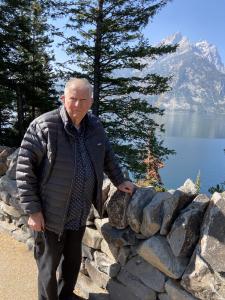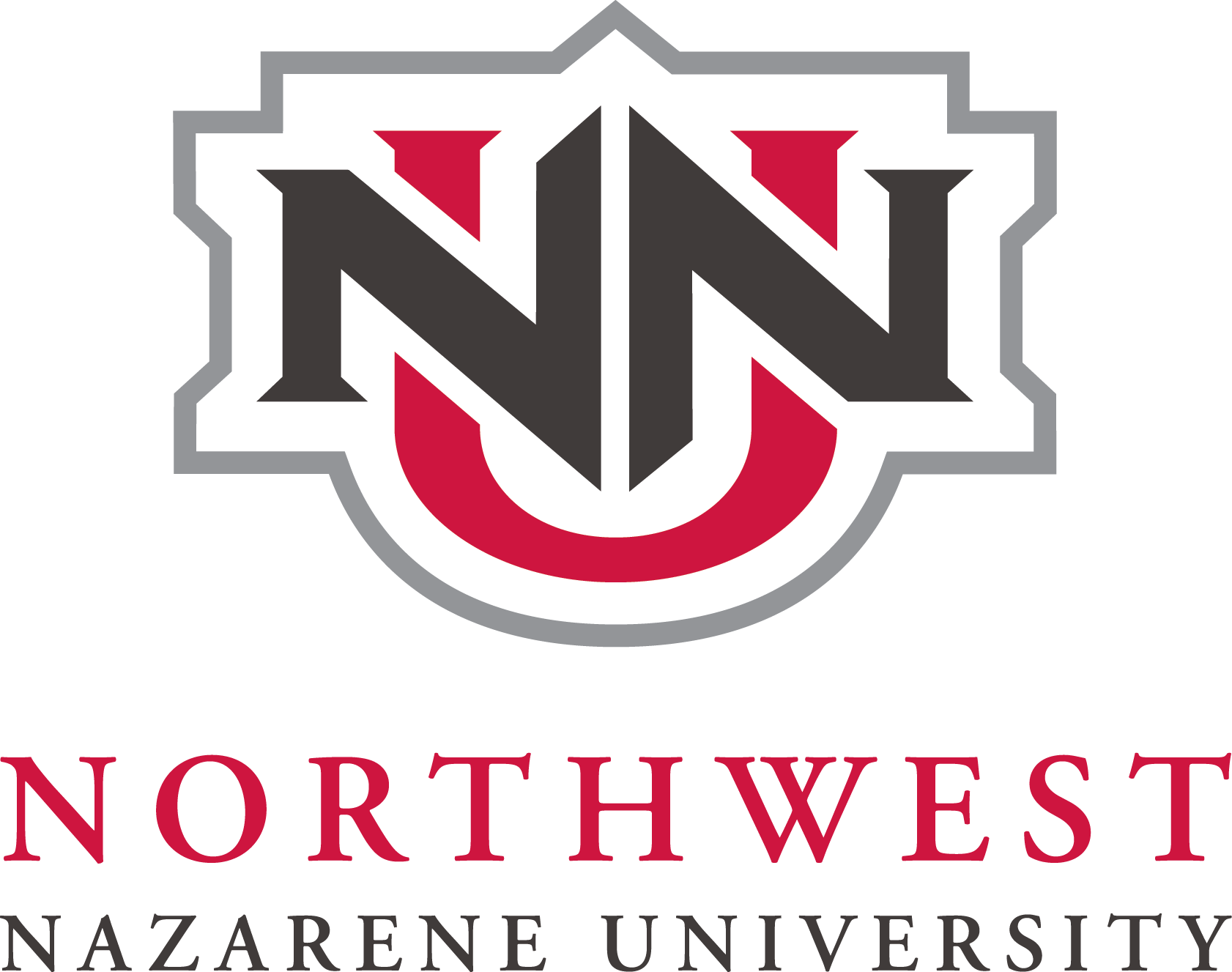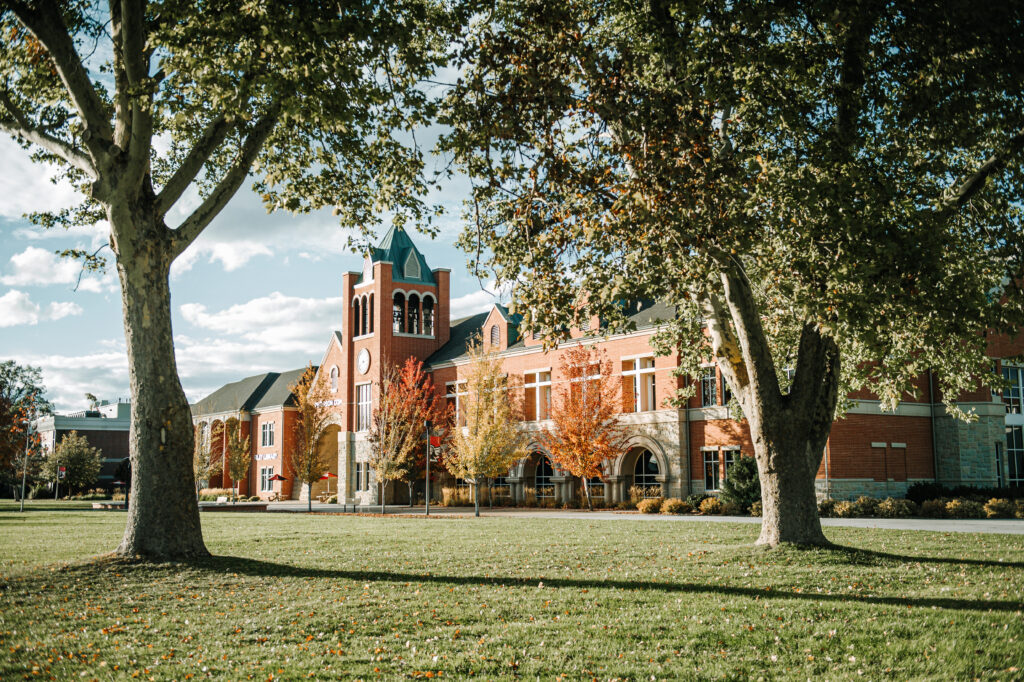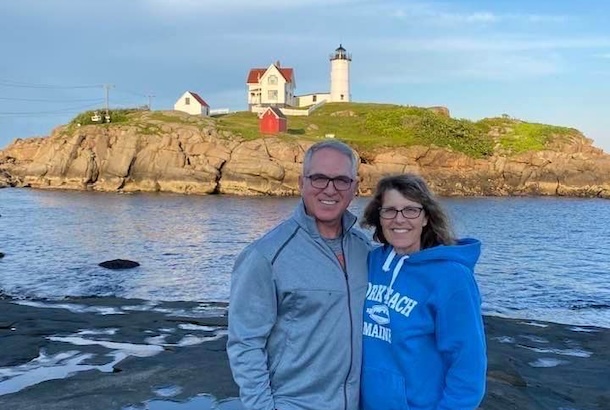 There are many facets of Christian higher education, and at NNU, nuances of faith and learning play out in the classroom, in chapel and in the dining and residence halls. NNU’s beauty is in its various shades of experience—worldview shaping; faculty and staff with integrity and kindness; safety to explore thought and belief; a warm place of compassion, community and belonging. NNU is unique in its steadfastness to a foundation built on Jesus Christ and over a century of tradition and excellence. As evidenced in the testimony of two alumni, Franklin Cook and Bre Sheldon, NNU is uniquely transformative as students are challenged in their thinking or offered a place of reprieve.
There are many facets of Christian higher education, and at NNU, nuances of faith and learning play out in the classroom, in chapel and in the dining and residence halls. NNU’s beauty is in its various shades of experience—worldview shaping; faculty and staff with integrity and kindness; safety to explore thought and belief; a warm place of compassion, community and belonging. NNU is unique in its steadfastness to a foundation built on Jesus Christ and over a century of tradition and excellence. As evidenced in the testimony of two alumni, Franklin Cook and Bre Sheldon, NNU is uniquely transformative as students are challenged in their thinking or offered a place of reprieve.
Graduation itself may have been anticlimactic, but NNC was where I began to learn how to think.
It started in my philosophy class with Francis Reeves. Before that class, I never gave much thought to why I thought or what I thought. I just thought. But Reeves pushed us again and again to analyze, to consider options, to think about other ways of thinking about what we assumed was true. This was a new exercise for most of us; actually, for all of us.
Although I had been raised in India, a culture vastly different from the U.S., I had no way of predicting that for most of my life I would also work in other cultures. I understood how to get inside a person’s head and values because I had learned to think—thanks to what I learned at NNC.
Never assume what you hear is true until it is in sync with what you already know is true. Run your theory through the funnel of reality as you know it.
Only in looking back did I understand that my education was divided into two parts. First was what I learned in class: from professors, in lectures, in books, reading from others. Some of this was how I learned to pass tests, to pass classes, to graduate. Which was, after all, the main point.
Second was what I learned when I did not know I was learning. Only years later, in my jobs, looking back, making decisions, would my mind float back through the years and connect the dots with something I had learned at NNC. What you learn in class is important. What you learn out of class may be more important. It is your landscape and you need to see it, try to understand it. You must also remember there are actually two landscapes. There is the one you see with your eyes. There is also the one you see with your mind, your dreams and hopes and goals and objectives. Those too are part of your landscape. NNC gave me an intellectual framework for my values and beliefs.
It is all well and good to believe this or that, or to feel this or that, but at the end of the day, you need some kind of a framework to hang your beliefs on. It needs to make sense. And the same goes for values.
You believe in honesty? Why? And what is honesty?
You believe in truth? What is truth? Whose truth?
You believe in transparency? How do you define it?
You believe in integrity? How do you judge it?
Think about it. If you are a hungry refugee in Somalia who has known only terror and war, what is your view of truth? If you are a 21-year-old guy in Damascus, Syria—not in school but with an AK-47 in your hands—how do you view integrity and honesty? If you are a girl, kidnapped and locked in a house in Cleveland and raped over and over for 10 years, what is your view of transparency? Think about it.
I have always wanted to know how to get from Point A to Point B. But God doesn’t give us the ability to see the end game. So we have to look for markers along the way, taking steps one at a time with only an occasional “leap of faith.”
I believe my years at NNC put some of those markers in place. Gave me some important steps to take along the journey.
And what undergirded those was a value system inside an intellectual framework. This became part of my landscape.
Franklin Cook, 1955, History and Philosophy & Ph.D. in Missiology
Franklin served the Church of the Nazarene as pastor, writer, administrator, professor and missions strategist, and was Regional Director for Eurasia from 1989-2004.








